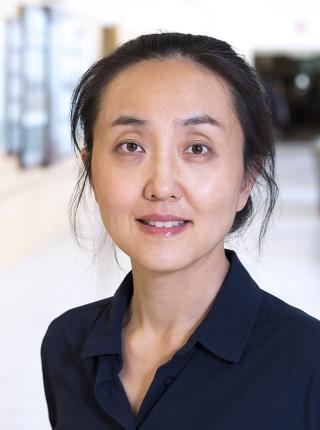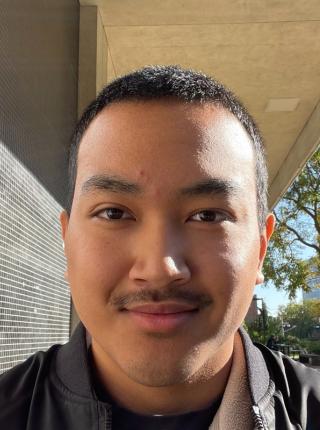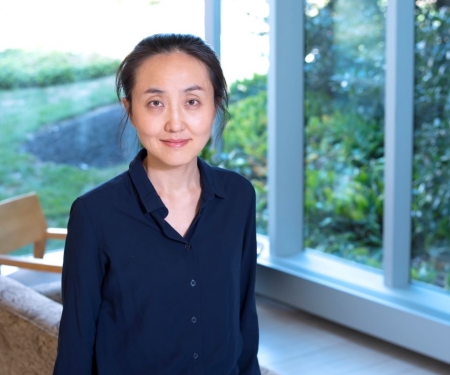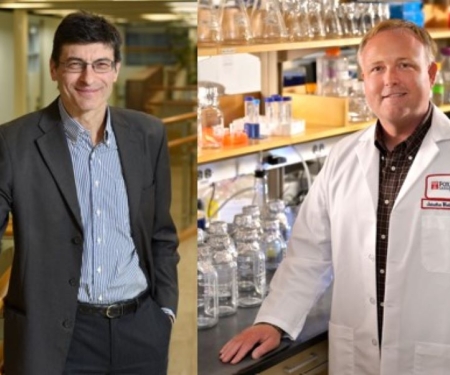Related Articles
00 / 00

Assistant Professor
Member, Cancer Epigenetics Institute
Lee lab focuses on computational epigenetics in cancer and aging. I am interested in identifying somatic epi-mutations in early-stage cancer and molecular-level subtypes using comprehensive multi-omics data analysis. The objective is to use this research to optimize clinically actional biomarkers and develop machine learning models to predict cancer typing, subtyping, matching therapeutics, and predicting relapse or metastasis. We pursue cutting-edge technologies, including single-cell multi-omics data, single-cell spatial transcriptomics, and proteomics, to identify predictive epigenetic signatures and understand the cancer microenvironment. We aim to design machine learning models to predict epigenetic and image biomarkers for early diagnostics and prognostics and recommend therapeutic options in cancer and neurodegenerative diseases.
2009 - 2015 Stony Brook University, Stony Brook, NY
Ph.D. student in Computer Science Department
Dissertation: “Algorithms and applications in genome assembly using long-read
sequencing technology,” advised by Prof. Michael Schatz
2006 - 2008 Carnegie Mellon University, Pittsburgh, PA
Master of Science in Information Security Technology and Management
1998 - 2002 Seoul National University, Seoul, Republic of Korea
Bachelor of Computer Science and Engineering
Simons Postdoctoral Fellowship, Lawrence Berkeley National Laboratory, 2015-2016
Ph.D. Fellowship, Stony Brook University, 2009-2010
M.S. Scholarship from CyLab, Carnegie Mellon University, 2006
Graduated from Seoul National University with honors. (Cum Laude), 2002

1. Gray Z, Chakraborty D, Duttweiller R, Alekbaeva G, Murphy S, Chetal K, Ji F, Wang Z, Myers C, Sun
M, Kaniskan HU, Dillingham M, Tang R, Gozani O, Jin J, Duy C, Lee H, Sadreyev R, and Whetstine
J, Histone 3 lysine 9 methylation balance controls site-specific DNA amplification and genomic
rearrangements of the Mixed Lineage Leukemia (MLL) gene. (submitted)
2. Sorscher S, LoPiccolo J, Heald B, Chen D, Bristow SL, Michalski ST, Nielsen SM, Lacoste A, Keyder
E, Lee H, Nussbaum RL, Martins R, Esplin ED, Rate of pathogenic germline variants in patients with
lung cancer. (submitted)
3. Lee H, Feng G, Esplin E & Snyder M. Predictive Signatures for Lung Adenocarcinoma Prognostic
Trajectory by Multiomics Data Integration and Ensemble Learning. in Mathematical and
Computational Oncology 9–23 (Springer International Publishing, 2021). Best Paper Award!
4. Roodgar M, Good BH, Garud NR, Martis S, Avula M, Zhou W, Lee H, et al. Longitudinal linked-read
sequencing reveals ecological and evolutionary responses of a human gut microbiome during antibiotic
treatment. Genome Res. 2021;31:1433–46. PMCID: PMC8327913
5. Cao W*, Lee H*, Wu W*, Zaman A*, McCorkle S, Yan M, Chen J, Xing Q, Sinnott-Armstrong N, Xu
H, Sailani MR, Tang W, Cui Y, Liu J, Guan H, Lv P, Sun X, Sun L, Han P, Lou Y, Chang J, Wang J,
Gao Y, Guo J, Schenk G, Shain AH, Biddle FG, Collisson E, Snyder M, Bivona TG. Multi-faceted
epigenetic dysregulation of gene expression promotes esophageal squamous cell carcinoma. Nat
Commun. 2020 Jul 22;11(1):3675. PMCID: PMC7376194
6. Sailani MR, Jahanbani F, Abbott CW, Lee H, Zia A, Rego S, Winkelmann J, Hopfner F, Khan TN,
Katsanis N, Müller SH, Berg D, Lyman KM, Mychajliw C, Deuschl G, Bernstein JA, Kuhlenbäumer G,
Snyder MP. Candidate variants in TUB are associated with familial tremor. PLoS Genet. 2020
Sep;16(9):e1009010. PMCID: PMC7529431
7. Roodgar M, Babveyh A, Nguyen LH, Zhou W, Sinha R, Lee H, Hanks JB, Avula M, Jiang L, Jian R,
Lee H, Song G, Chaib H, Weissman IL, Batzoglou S, Holmes S, Smith DG, Mankowski JL, Prost S,
Snyder MP. Chromosome-level de novo assembly of the pig-tailed macaque genome using linked-read
sequencing and HiC proximity scaffolding. Gigascience. 2020 Jul 1;9(7). PMCID: PMC7350979
8. Sailani MR, Halling JF, Møller HD, Lee H, Plomgaard P, Pilegaard H, Snyder MP, Regenberg B.
Lifelong physical activity is associated with promoter hypomethylation of genes involved in
metabolism, myogenesis, contractile properties and oxidative stress resistance in aged human skeletal
muscle. Scientific Reports. 2019. PMCID: PMC6397284
9. Souza GM, Van Sluys M-A, Lembke CG, Lee H, Margarido GRA, Hotta CT, Gaiarsa JW, Diniz AL,
Oliveira M de M, Ferreira S de S, Nishiyama MY, Ten-Caten F, Ragagnin GT, Andrade P de M, de
Souza RF, Nicastro GG, Pandya R, Kim C, Guo H, Durham AM, Carneiro MS, Zhang J, Zhang X,
Zhang Q, Ming R, Schatz MC, Davidson B, Paterson AH, Heckerman D. Assembly of the 373k gene
space of the polyploid sugarcane genome reveals reservoirs of functional diversity in the world’s
leading biomass crop. Gigascience. 2019 Dec 1;8(12). PMCID: PMC6884061
10. HuBMAP Consortium. The human body at cellular resolution: the NIH Human Biomolecular Atlas
Program. Nature. 2019 Oct;574(7777):187–192. PMCID: PMC6800388
11. Sedlazeck FJ, Lee H, Darby CA, Schatz MC. Piercing the dark matter: bioinformatics of long-range
sequencing and mapping. Nat Rev Genet. 2018 Jun;19(6):329–346. PMID: 29599501
12. Miller JR, Zhou P, Mudge J, Gurtowski J, Lee H, Ramaraj T, Walenz BP, Liu J, Stupar RM, Denny R,
Song L, Singh N, Maron LG, McCouch SR, McCombie WR, Schatz MC, Tiffin P, Young ND,
Silverstein KAT. Hybrid assembly with long and short reads improves discovery of gene family
expansions. BMC Genomics. 2017 Jul 19;18(1):541. PMCID: PMC5518131
13. Ming R, VanBuren R, Wai CM, Tang H, Schatz MC, Bowers JE, Lyons E, Wang M-L, Chen J, Biggers
E, Zhang J, Huang L, Zhang L, Miao W, Zhang J, Ye Z, Miao C, Lin Z, Wang H, Zhou H, Yim WC,
Priest HD, Zheng C, Woodhouse M, Edger PP, Guyot R, Guo H-B, Guo H, Zheng G, Singh R, Sharma
A, Min X, Zheng Y, Lee H, Gurtowski J, Sedlazeck FJ, Harkess A, McKain MR, Liao Z, Fang J, Liu J,
Zhang X, Zhang Q, Hu W, Qin Y, Wang K, Chen L-Y, Shirley N, Lin Y-R, Liu L-Y, Hernandez AG,
Wright CL, Bulone V, Tuskan GA, Heath K, Zee F, Moore PH, Sunkar R, Leebens-Mack JH, Mockler
T, Bennetzen JL, Freeling M, Sankoff D, Paterson AH, Zhu X, Yang X, Smith JAC, Cushman JC, Paull
RE, Yu Q. The pineapple genome and the evolution of CAM photosynthesis. Nat Genet. 2015
Dec;47(12):1435–1442. PMCID: PMC4867222
14. Marcus S, Lee H, Schatz MC. SplitMEM: a graphical algorithm for pan-genome analysis with suffix
skips. Bioinformatics. 2014 Dec 15;30(24):3476–3483. PMCID: PMC4253837
15. Schatz MC, Maron LG, Stein JC, Hernandez Wences A, Gurtowski J, Biggers E, Lee H, Kramer M,
Antoniou E, Ghiban E, Wright MH, Chia J-M, Ware D, McCouch SR, McCombie WR. Whole-genome
de novo assemblies of three divergent strains of rice, Oryza sativa, document novel gene space of aus
and indica. Genome Biol. 2014;15(11):506. PMCID: PMC4268812
16. Kim S, Jeong K, Bhutani K, Lee J, Patel A, Scott E, Nam H, Lee H, Gleeson JG, Bafna V. Virmid:
accurate detection of somatic mutations with sample impurity inference. Genome Biol. 2013 Aug
29;14(8):R90. PMCID: PMC4054681
17. Lee H, Schatz MC. Genomic dark matter: the reliability of short read mapping illustrated by the
genome mappability score. Bioinformatics. 2012 Aug 15;28(16):2097–2105. PMCID: PMC3413383
18. Lee H, Tsai H-M, Tonguz OK. On the Security of Intra-Car Wireless Sensor Networks. IEEE 70th
Vehicular Technology Conference. 2009. Available from:
http://dx.doi.org/10.1109/vetecf.2009.5378964
The Lee laboratory at the Fox Chase Cancer Center is recruiting highly ambitious and self-motivated Postdoctoral Fellows. The Lee laboratory focuses on computational epigenetics in cancer and aging. We are interested in identifying somatic epi-mutations in early-stage cancer and molecular-level subtypes using comprehensive multi-omics data analysis. The objective is to optimize clinically actional biomarkers and develop machine learning models to predict cancer typing, subtyping, matching therapeutics, and predicting relapse or metastasis. We pursue cutting-edge technologies, including long-read sequencing technology, cell-free DNA, single-cell multi-omics data, single-cell spatial transcriptomics, and proteomics data. Computationally we adopt deep learning and more interpretable machine learning algorithms to model epigenetic and image signatures for early diagnosis, recommend therapeutic options, and predict their prognostic prospects in cancer. Some example publications addressing these areas of interest are Lee et al.(2012) Bioinformatics, Lee et al. (2020) Nat Commun, and Lee et al. (2021) Mathematical and Computational Oncology. The Lee laboratory seeks candidates that published peer-reviewed manuscripts and that have strong expertise in cancer biology, computational medicine, and epigenomics. The experience and skills in High-performance computing (HPC), Slurm job management, Python, and R will be welcome. Additional details regarding the laboratory research can be found at https://comp-epi-lee-lab.org/.
As one of the four original cancer centers to receive comprehensive designation from the National Cancer Institute, Fox Chase Cancer Center has been at the forefront of cancer research for almost 90 years. We are home to excellent research facilities, top clinicians and scientists, and outstanding patient care. Our singular focus on cancer, which couples discovery science with state of the art clinical care and population health, remains the foundation of our work.
The scientist training programs at Fox Chase Cancer Center provide professional development opportunities in four core areas identified as crucial for successful careers in science, research, and health care including communication, leadership, teaching, and mentorship. Upon joining the program, graduate students and postdocs develop individual development plans to help guide their growth. Training throughout the year is supplemented with free professional development opportunities, including a robust ‘How To’ series, writing courses, networking, mentorship, and teaching opportunities, a trainee-led seminar series, a trainee-led annual Research Conference, and more. Postdocs at Fox Chase Cancer Center are supported by the Temple University Postdoc Association and the Office of Academic Affairs at Fox Chase, and are compensated with competitive pay and benefits.
In addition to the robust training program, scientists at Fox Chase Cancer Center benefit from being part of the rich scientific and biotech environment in the Philadelphia region. Many of our former trainees are now employees (and contacts) at nearby institutions and companies, including The Wistar Institute, Merck, GSK, AACR, and numerous others.
Email a CV, a cover letter that states research interest(s) and goals, and the name of at least three references to [email protected]. Qualified candidates will then be invited to complete a job application.


